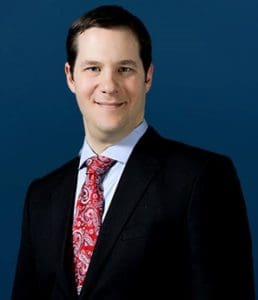In an uncommon occurrence, the Supreme Court recently issued two opinions in two weeks favorable to companies accused of patent infringement including many e-commerce companies. In the first, the U.S. Supreme Court recently put new restrictions on where patent lawsuits can be filed. The T.C. Heartland LLC v. Kraft Foods Group Brands LLC decision upends a decades-old rule that effectively allowed plaintiffs to file a patent infringement case in any location where the accused company made sales of the alleged infringing product. This led to a proliferation of patent cases in geographically inconvenient locations such as eastern Texas deemed friendly to patent holders. At significant expense, companies targeted in lawsuits were routinely forced to defend highly involved patent cases far from the center of their operations.
Under the patent venue statute interpreted on May 22 by the Supreme Court, companies can be sued for patent infringement where they reside or where they have a regular, established place of business. The Supreme Court found that a company resides only in the state under which it is incorporated. Such a definition is substantially narrower than the previous standard, under which a company could reside in any location where it made sales of the accused product. The high court’s decision therefore limits where patent lawsuit can be filed to one of two places associated with the accused infringer: where the company is incorporated or where it has a regular, established place of business.

Jeffrey Drake
The Supreme Court’s decision provides more certainty to companies at the receiving end of patent infringement claims by allowing them to assess with greater precision where such claims may be litigated against them. For example, a manufacturer incorporated in Delaware with its manufacturing plant in California could now only be sued for patent infringement in either Delaware or California. Similarly, a retail e-commerce company incorporated in Illinois and having its headquarters and warehouse in Chicago could only be sued for patent infringement in Illinois.
Companies preparing to file patent infringement lawsuits should take note of these significant changes. Before the T.C. Heartland decision, plaintiffs could file nearly anywhere sales of the accused product were made—including in out-of-the-way locations deemed friendly to plaintiffs. This included the U.S. District Court for the Eastern District of Texas where, for the last several years, about a third of all patent infringement cases were filed—even though east Texas had little connection to the corporate defendants other than sales of the accused product occurring there.
Plaintiffs may now be dissuaded from filing patent infringement cases they previously would have filed for a variety of reasons. For one, they will have to do so on the defendant’s home turf rather than in a friendly locale. In addition, plaintiffs face increased expense because they will no longer be able to file multiple patent infringement cases in the same location.
Rather, each case must now be filed where the corporate defendant is incorporated or where it has a regular, established place of business. Ultimately, these new realities should give companies greater leverage to defend themselves when accused of patent infringement.
Just over a week later on May 30 in an equally significant opinion, the court found that the sale of a patented product exhausts all rights in the patent regardless of the restrictions imposed by the patent holder. In Impression Products Inc. v. Lexmark International Inc., Lexmark was attempting to control the toner resupply business by placing a “single-use/no-resale” restriction on the use of its toner cartridges by the customers who purchased the item. Impression Products and others obtained empty Lexmark toner cartridges, refilled and then resold them. Lexmark then sued these companies alleging that the refilled toner cartridges infringed Lexmark’s patents. The Supreme Court held that Lexmark’s strategy was an attempt to circumvent well established legal principles restricting what purchasers can do with their property.
The Lexmark case will make it easier for entrepreneurial companies like Impression Products to resell online products patented by larger companies because there will be fewer restrictions on the sale of such products. Ultimately, fewer restrictions should lead to the smoother flow of e-commerce.
The impact of this ruling is widespread. Companies on both sides of license and distribution agreements should reassess how this Lexmark decision impacts their agreements and ability to sell patented products. This is especially relevant for those companies selling the products of others since limits on what resellers can do with patented goods have become widespread in license and distribution agreements over the last number of years. Many of these restrictions may now be invalid.
Jeffrey Drake, an attorney and principal at Chicago-based Miller, Canfield, Paddock and Stone, P.L.C., focuses his practice on the procurement and enforcement of patents, copyrights, trademarks and other forms of intellectual property. As lead trial counsel, he litigates patent matters for a wide variety of clients in federal courts across the country, covering such technologies and industries as software, pharmaceutical compositions, animal health products, medical devices, telecommunications, sports equipment, and automobile aftermarket collision replacement products. He can be reached via email at: [email protected].
Favorite